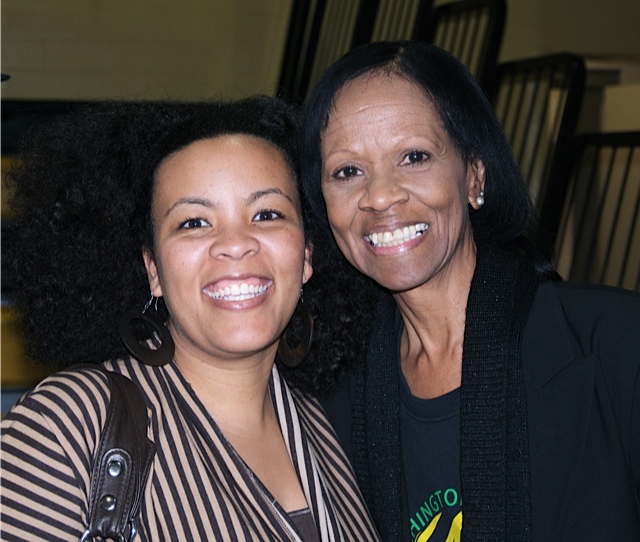Last month while attending a basketball game at my high school alma mater, I was blessed to spend a little time with one of my high school English teachers, Jacquelyn Stevens. Although we talked for just a little over an hour that night, her words and spirit still resonate in my mind. She is now teaching what some call her “grandstudents.” In other words, the very students she taught years ago are now parents of her current students. As an educator myself, I always tried to glean bits and pieces of my former teachers, striving to be the best teacher possible. Now, after having a moment with Mrs. Stevens, I realize I still have a very long way to go!
What is the major difference between teachers today and teachers thirty years ago? I know many feel the difference does not reside in the teachers, but rather in the children, the parents, the educational system, the church, and everywhere else. However, after listening to a few comments of this woman, who I might add was named The NFL’s Teacher of the Year, I am confident, that even in the midst of such changes, a solid, committed, and driven teacher can make all the difference…in any classroom, with any group of children.
A few important things I’ve learned from a conversation with my teacher:
What she said: These children know I don’t play.
What I learned: Discipline and respect are non-negotiables. Educating children is one of the most important duties of this world, and a teacher must approach it as such. Students will sniff weakness in seconds, so discipline is imperative. When you have proven “you don’t play,” the children recognize it, and your practices validate your reputation.
What she said: I am not concerned about circumstances I can’t control. If I never see or meet a child’s parent, that has nothing to do with my purpose and the reason I’m here.
What I learned: As an educator, you can’t waste time and energy focused on the things you can’t control. Instead, you must remain focused on what you know you control, YOUR job, not the job of the parent or anyone else. As a matter of fact, if you know the home/parental situation is not ideal, that’s reason to intensify your effort to impact that child. If more teachers would value and maximize the time they have with their students (which are really the most valuable hours of a child’s day), we would witness a revolution in our schools and our homes.
What she said: I have gone knocking on doors looking for students who have been absent from school. They know I love them. These are my children.
What I learned: A committed teacher understands there is really no difference between her own biological children and the children she teaches. If you can’t view your students as your own children, and you make a clear and consistent differentiation between the two, you may want to reconsider your perspective. For many students today, teachers serve as the most consistent and effective authoritative figure, often yielding more respect and attention than students’ own parents. We must understand and view every student’s future equally important as that of our own biological children. Only then will our efforts align our thoughts, producing success in the classroom.
What she said: Don’t grow weary. If you’re tired, find something else to do.
What I learned: Don’t grow weary. The worst thing you can present to a child, is a weary and tired disposition. This communicates defeat and lack in motivation to teach. Your attitude and energy level sets the tone for the entire experience. You are the mirror into which they look for a reflection. Students are not motivated by unmotivated teachers.
I was blessed to be a student of this teacher over twenty years ago, and I continue to be blessed by her words and spirit today. If you are teaching children, I urge you to adjust your perspective, assess your practices, and function knowing only one thing really matters…the children you’ve been blessed to bless.
Peace and Blessings,
Mama Tameka


Awesome article. My former teacher, current church member, & the first draft editor of my book. Go Mrs Stevens!!!
As a fellow educator, your article is very inspiring!!
Love Mrs. Stevens! Great article, Tameka!